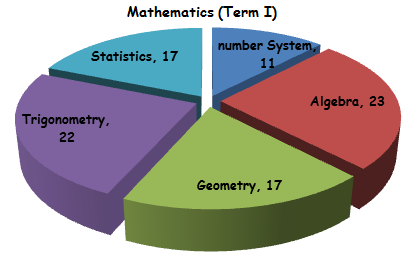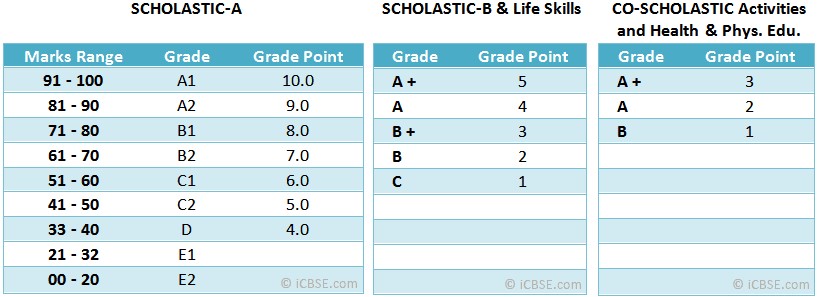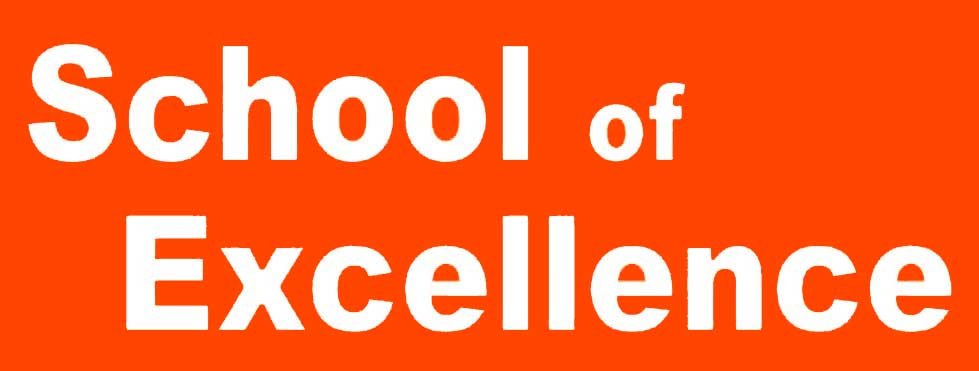About CBSE:
The Central Board of Secondary Education (CBSE) is a national level board of education in India for public and private schools, controlled and managed by Union Government of India. CBSE has asked all schools affiliated to follow only NCERT curriculum. There are approximately 20,299 schools in India and 220 schools in 28 foreign countries affiliated to the CBSE. School of Excellence is one of them in Surendranagar Gujarat.
CBSE affiliates all Kendriya Vidyalayas, all Jawahar Navodaya Vidyalayas, private schools and most of the schools approved by Central Government of India.
School Code: 10369
Affiliation Number: 430395
Period of Affiliation: 01.04.2018 To 31.03.2021
Affiliation Status: School of Excellence is affiliated for Primary and Secondary.

CBSE conducts the final examinations for Class 10 and Class 12 every year in the month of March. The results are announced by the end of May. The board earlier conducted the AIEEE Examination for admission to undergraduate courses in engineering and architecture in colleges across India. However the AIEEE exam was merged with the IIT-Joint Entrance Exam (JEE) in 2013. The common examination is now called JEE (Main) and is henceforth conducted by National Testing Agency.
CBSE also conducts AIPMT (All India Pre Medical Test) for admission to major medical colleges in India. In 2014, the conduct of the National Eligibility Test for grant of junior research fellowship and eligibility for assistant professor in institutions of higher learning was outsourced to CBSE. Apart from these tests, CBSE also conducts the Central Teacher’s Eligibility Test and the Class X optional proficiency test. With the addition of NET in 2014, the CBSE has become the largest exam conducting body in the world.
On 10 November 2017, Union Cabinet chaired by Prime Minister Narendra Modi, cleared a proposal for creation of a National Testing Agency (NTA) which will conduct various entrance examinations. Currently, Central Board of Secondary Education (CBSE) conducts National Eligibility cum Entrance Test (NEET), Central Teacher Eligibility Test (twice a year) UGC's National Eligibility Test (twice a year) and the entrance test for Jawahar Navodaya Vidyalayas.
CBSE follows the following grading pattern and promotion criteria:
For promotion from Secondary (Class 10) to Senior Secondary (Class 11-12), a student must obtain, for all subjects (or best 5 if 6 subjects are taken), 33% overall, without any minimum theory mark requirement.
Originally, the passing criterion was set such that a student had to get 33% in both the theory and practical components. However, an exemption was initially granted for students writing the exam in 2018 as they went through the old CCE system in the previous year. However, CBSE later extended this relief for students writing the exam from 2019 and later as well.
For a student who does not manage to pass up to two subjects, he/she can write the compartment in those subjects in July. For those who fail the compartment, or those who fail in three subjects or more, he/she must rewrite all the subjects taken in the next year.
Note:
For a student who does not manage to pass in exactly one subject, he/she can write the compartment for that subject in July. For those who fail the compartment, or those who fail in two subjects or more, he/she must rewrite all the subjects taken in the next year.
Benefits of CBSE:
Whether you should opt for the CBSE or State Board has always been a never-ending debate. The student community is divided when it comes to forming an opinion on this matter. Many end up taking bad decisions, which ultimately affect their career badly. There are certain advantages of CBSE over State Boards. It has therefore become very crucial for students to know the advantages and disadvantages of these two types of boards.
Understanding State Board
The educational structure, paper pattern and even the syllabus is not the same as each state has its own state board, and the administrative authorities are over the educational ministry of that respective state. It becomes difficult especially during admission to any centralized institution. Many times, their syllabus is not in line with the expected standards. But if a student wishes to pursue higher studies in the colleges of that particular state itself, then this proves to be a big advantage for him/her. It is mainly because of the fact that the students are already well-acquainted with the educational system of the state.

Understanding CBSE Board
CBSE stands for Central Board for Secondary Education. It is the national board of our country. The educational material and teaching methodology is conducive to the national interests of the country. All the major nationalized competitive exams like JEE are conducted by CBSE.
CBSE is considered to be tougher than state boards but is more student-friendly and interesting to study. The board is especially beneficial to those who wish to pursue higher education in some Nationalized Institutions rather than State Institutions. There are some advantages of CBSE over State Boards.
1. CBSE is a lot more student-friendly than State Boards. Its course structure is designed to ensure that students do not face a lot of pressure and books are made interactive and interesting. Also, lots of fun activities are included in between the chapters to help students learn in a playful way. It makes the whole process of conveying knowledge to the students efficient and healthy.
2. CBSE exams are also very conducive to a positive environment for students. All the efforts are taken to ensure that the students actually learn from the entire process. They don’t need to mug up things to pass the exams. The papers are designed in such a way that they test how much the students have learnt. The results are mostly favorable and very few students fail in CBSE exams. The probability of passing the examination very high.
3. The CBSE curriculum will definitely help you a lot if you are planning to pursue future studies from a centralized institution like an IIT or AIIMS. The preliminary exams for these institutions are organised by CBSE and therefore you all can get an edge over others if you have done your primary and secondary education in CBSE board
4. CBSE not only imparts quality knowledge to the students but also ensures overall physical and mental growth. It encourages students to pursue sports alongside studies, and a lot of emphasis is given on the physical growth of the children. It also teaches the students to be good citizens of the country and above all good humans.
5. CBSE offers a lot of flexibility to the students to pursue their field of interest. At each stage of education, students are given a choice to study in their field of interest and there is no compulsion to pick a certain stream. This primarily instills a sense of confidence in the students and eventually helps them to believe in the system.
School of Excellence would love to answer all your doubts. Don’t hesitate to give us a call or drop us an email.
Grading Pattern:
For the Class 10, CBSE (along with the marks obtained) includes the positional grade obtained by the student, which is dependent on the average performance of the students in that subject. Consequently, the cutoffs required to obtain a particular grade vary every year.
| Grading system by CBSE [9] | |
|---|---|
| Grade | Criteria |
| A1 | Top 1/8 of passed students in that subject |
| A2 | Next 1/8 of passed students in that subject |
| B1 | Next 1/8 of passed students in that subject |
| B2 | Next 1/8 of passed students in that subject |
| C1 | Next 1/8 of passed students in that subject |
| C2 | Next 1/8 of passed students in that subject |
| D1 | Next 1/8 of passed students in that subject |
| D2 | Last 1/8 of passed students in that subject |
| E | Failed students (in either theory, practical or overall) |
The cutoffs required to obtain a particular grade in 2018 are listed below:
| Class 10 (2018) | |||||||
|---|---|---|---|---|---|---|---|
| Grade | English Communicative | Mathematics | Science | Social Science | Malayalam | Hindi | French |
| A1 | 92 | 92 | 87 | 90 | 96 | 93 | 97 |
| A2 | 87 | 81 | 76 | 82 | 93 | 88 | 95 |
| B1 | 83 | 70 | 67 | 74 | 90 | 83 | 92 |
| B2 | 78 | 60 | 58 | 66 | 87 | 78 | 87 |
| C1 | 73 | 50 | 49 | 58 | 84 | 72 | 82 |
| C2 | 66 | 42 | 41 | 49 | 80 | 65 | 74 |
| D1 | 56 | 34 | 34 | 41 | 73 | 54 | 62 |
| D2 | 33 (minimum for all subjects) | ||||||
Former grading scale (CCE)
| Grade | Criteria |
|---|---|
| A1 | >90% |
| A2 | 81-90% |
| B1 | 71-80% |
| B1 | 61-70% |
| C1 | 51-60% |
| C2 | 41-50% |
| D | 33-40% |
| E1 | 21-32% |
| E2 | 0-20% |

